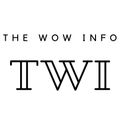In today's fast-paced and demanding world, finding time to rest and recharge can often feel like a luxury. However, science has shown that taking a midday nap, also known as a power nap, can have numerous benefits for both productivity and overall well-being. Napping has been embraced by cultures around the world for centuries, and its positive impact on mental and physical health is now being recognized globally. In this blog post, we will explore the science behind napping and uncover the various ways in which a midday snooze can enhance your productivity and well-being.
The Science behind Napping:
Napping is not just a remedy for sleep-deprived individuals; it serves as a valuable tool for optimizing cognitive function and rejuvenating the mind. Research has consistently demonstrated the benefits of napping on memory, creativity, problem-solving, and overall mental performance. When we nap, our brain enters a state of rest that promotes memory consolidation, allowing us to better retain and recall information. Additionally, napping has been linked to increased creativity and enhanced problem-solving skills, as it provides an opportunity for the brain to process and connect ideas.
The Benefits of Napping:
-
Increased Alertness and Focus:
A short nap of 10 to 20 minutes can significantly improve alertness, boost concentration, and enhance focus. Napping helps combat the post-lunch dip in energy and mental clarity, enabling you to stay productive and engaged throughout the day. -
Enhanced Memory and Learning:
Napping facilitates the consolidation of memories, improving information retention and recall. It allows your brain to process and organize newly acquired information, leading to better learning outcomes and increased productivity. -
Stress Reduction:
Taking a nap can help reduce stress and promote relaxation. By giving yourself a break from the demands of the day, you can alleviate mental and physical tension, leading to improved well-being and a more positive outlook. -
Mood Enhancement:
Napping has been shown to enhance mood and emotional well-being. It can help regulate emotions and reduce irritability, leading to a more positive and balanced mental state. -
Physical Rejuvenation:
Napping not only benefits the mind but also allows the body to recover and recharge. It can help reduce fatigue, increase energy levels, and improve physical performance, making you more productive and efficient in your daily tasks.
| Benefit | Description |
|---|---|
| Increased Alertness | A 10-20 minute nap can increase alertness and improve cognitive performance. |
| Enhanced Memory | Napping facilitates memory consolidation, improving information retention and recall. |
| Improved Focus | Napping helps combat the post-lunch dip, boosting concentration and enhancing focus. |
| Stress Reduction | Taking a nap can reduce stress, promoting relaxation and improving overall well-being. |
| Mood Enhancement | Napping enhances mood, reducing irritability and contributing to a more positive mental state. |
| Physical Rejuvenation | Napping reduces fatigue, increases energy levels, and improves physical performance. |
| Creativity Boost | Napping enhances creativity and problem-solving skills by allowing the brain to process and connect ideas. |
| Cognitive Enhancement | Napping improves cognitive function, including attention, learning, and logical reasoning abilities. |
How to Optimize Your Nap:
To reap the full benefits of napping, it's essential to approach it strategically. Here are a few tips to help you optimize your midday snooze:
-
Keep it Short:
Aim for a nap duration of 10 to 30 minutes to avoid entering deep sleep and waking up feeling groggy. Shorter naps allow you to reap the benefits of rest and relaxation without disrupting your sleep schedule. -
Find a Comfortable Environment:
Create a nap-friendly environment by ensuring your nap space is quiet, dark, and comfortable. Consider using an eye mask, earplugs, or white noise machines to block out distractions and facilitate relaxation. -
Timing Matters:
The ideal time for a nap is typically in the early afternoon, around 1 to 3 p.m. This aligns with the body's natural circadian rhythm and helps combat the post-lunch energy slump. However, adjust the timing based on your individual sleep patterns and schedule. -
Experiment and Adapt:
Everyone's sleep needs and preferences are different, so it's essential to experiment and find what works best for you. Try different nap durations, environments, and timings to determine the optimal approach that enhances your productivity and well-being.
Here are some interesting facts related to the power of napping:
-
NASA's Napping Study:
NASA conducted a study on sleepy military pilots and astronauts and found that a 40-minute nap improved their performance by 34% and alertness by 100%. -
Famous Nappers:
Many famous figures throughout history were avid nappers. Albert Einstein, Winston Churchill, and Leonardo da Vinci were known for their regular napping habits, which they believed enhanced their creativity and productivity. -
Cultural Embrace:
Napping is deeply ingrained in the cultures of various countries. In Spain, the tradition of "siesta" involves taking a midday nap to escape the afternoon heat and recharge for the rest of the day. In Japan, "inemuri," or sleeping while present, is accepted and seen as a sign of hard work. -
The 10-Minute Nap Hack:
A study conducted at the University of California, Berkeley, found that a 10-minute nap provided significant benefits, including improved cognitive function and increased stamina, comparable to longer naps. -
NASA's "Nappuccino" Technique:
To maximize alertness, NASA developed a technique called the "nappuccino." It involves drinking a cup of coffee just before a short nap. The caffeine takes about 20 minutes to kick in, coinciding with the waking from the nap, providing an extra boost of energy. -
Napping in the Animal Kingdom:
Humans are not the only creatures that benefit from napping. Many animals, such as cats, take short naps throughout the day, allowing them to conserve energy and stay alert when needed. -
Napping for Night Workers:
For individuals who work night shifts or irregular schedules, napping can be particularly beneficial. Research suggests that a well-timed nap can help shift workers combat fatigue, improve alertness, and adapt to their non-traditional sleep patterns. -
Napping in School Systems:
Some educational institutions have embraced the power of napping. In countries like China and Japan, it is common for students to have designated nap times during the school day to improve their focus and academic performance. -
The Power of "Power Naps":
Even short power naps can have significant benefits. Research shows that a 10 to 20-minute nap can improve alertness, memory, and cognitive performance, making it an efficient way to recharge and boost productivity. -
Napping and Longevity:
A study conducted by the Harvard School of Public Health found that regular napping may be associated with a reduced risk of death from heart disease. The research suggests that napping's ability to reduce stress and promote relaxation contributes to better cardiovascular health.
These interesting facts highlight the widespread recognition and benefits of napping across different cultures, fields of study, and even the animal kingdom.
Conclusion: Incorporating a well-timed nap into your daily routine can be a game-changer for your productivity and well-being. Napping is not a sign of laziness or unproductiveness; rather, it is a powerful tool to recharge your mind and body, allowing you to perform at your best. By embracing the power of napping, you can experience increased alertness, enhanced memory and learning, reduced stress, improved mood, and physical rejuvenation.
To make the most of your midday nap, remember to keep it short and avoid entering deep sleep, find a comfortable environment that promotes relaxation, time your nap strategically according to your individual sleep patterns, and be open to experimenting and adapting your approach.
However, it's important to note that napping should not replace a good night's sleep. Naps are most effective when combined with a healthy sleep routine that includes sufficient nighttime sleep. Prioritizing quality sleep at night and incorporating a well-timed nap during the day can work in harmony to enhance your overall well-being and productivity.
The power of napping should not be underestimated. It has been proven through scientific research and embraced by cultures worldwide for its ability to boost productivity and promote well-being. By incorporating a midday snooze into your routine, you can harness the benefits of napping and unlock your full potential. So, embrace the power of napping and give yourself the gift of rejuvenation and productivity.
Discover More
Most Viewed
Christmas is a season of joy, love, and traditions. And what better way to get into the holiday spirit than through timeless carols? These musical gems have been bringing people together for generations. Here’s our ranked list of the Top 10 Christmas Caro…
Read More

















